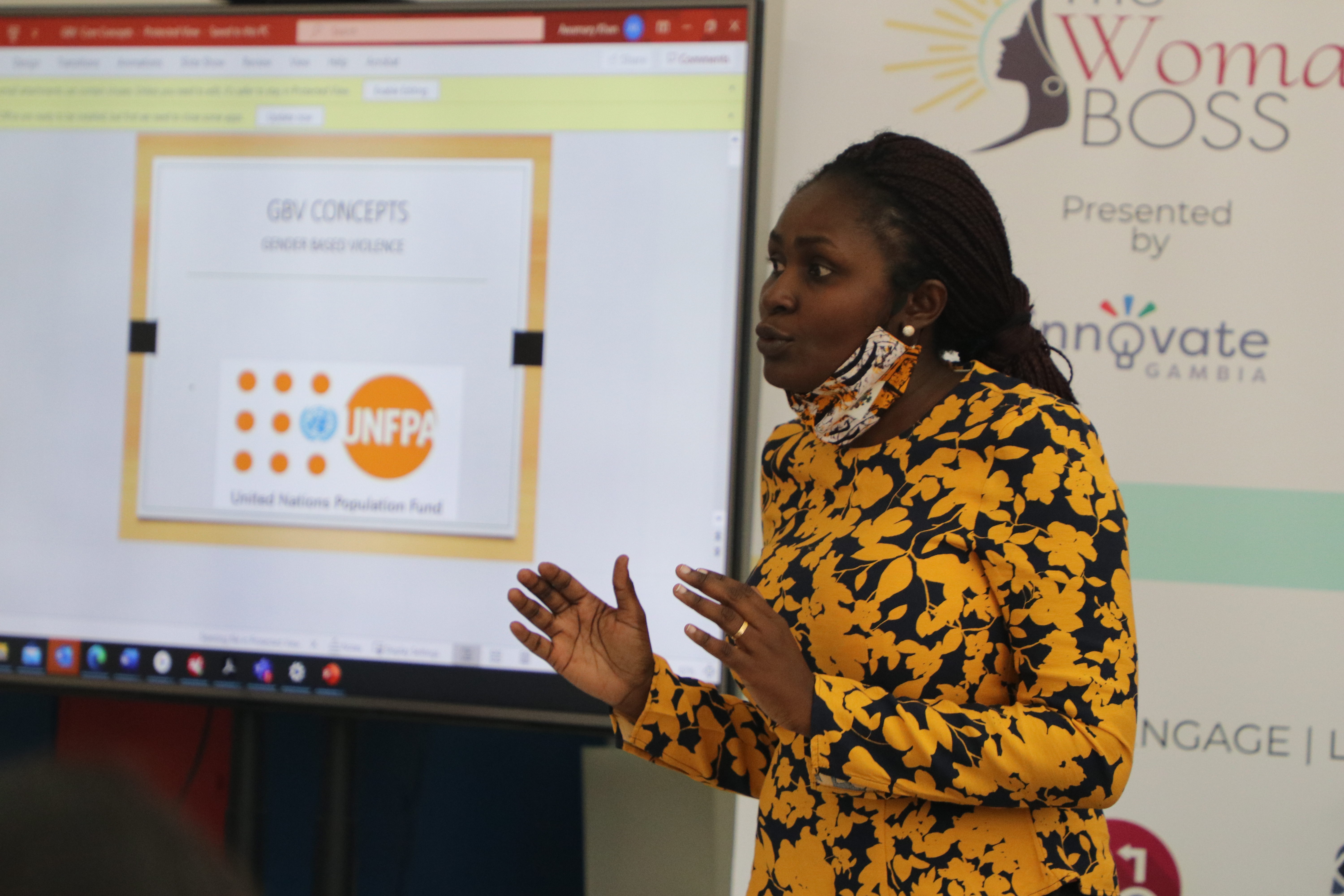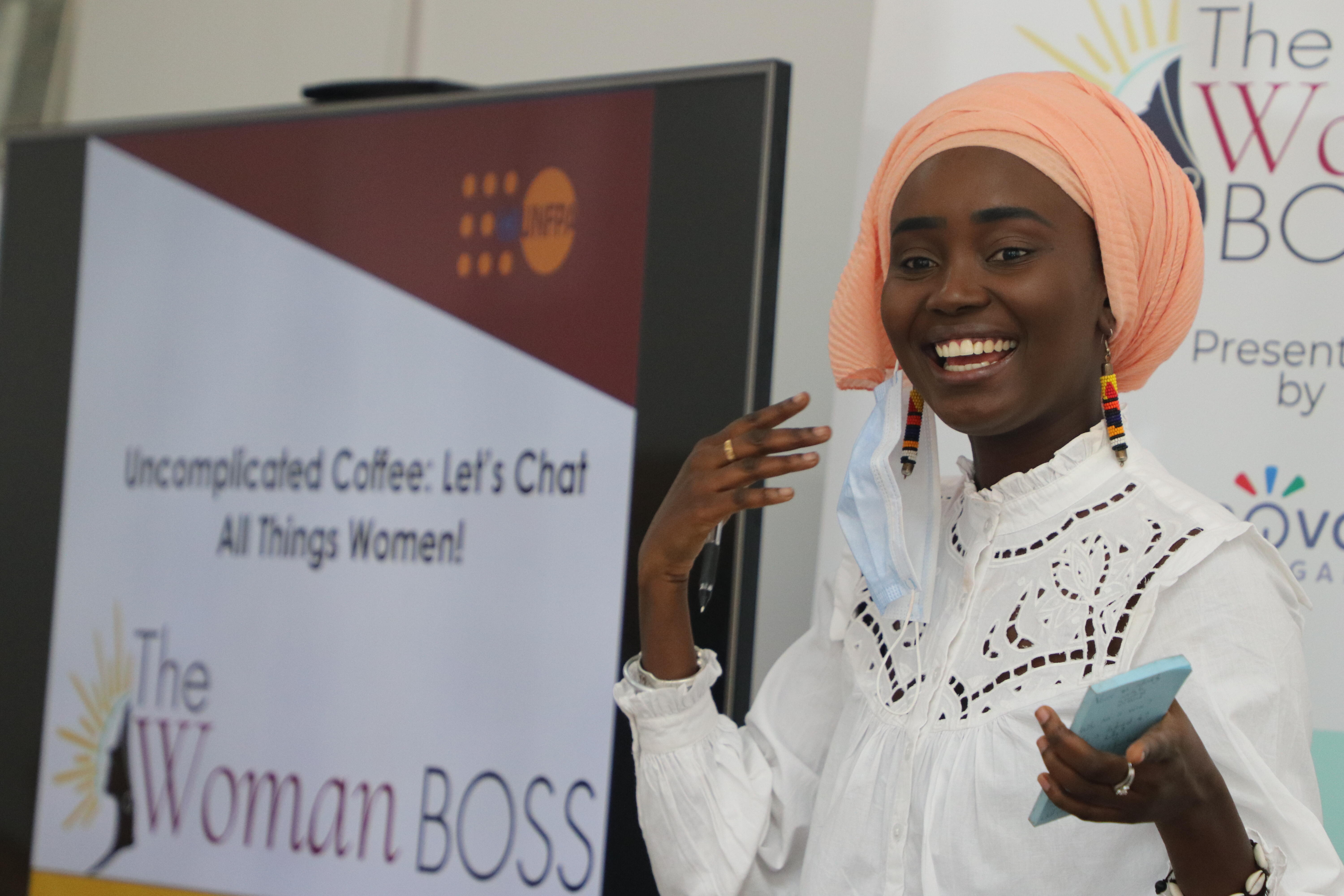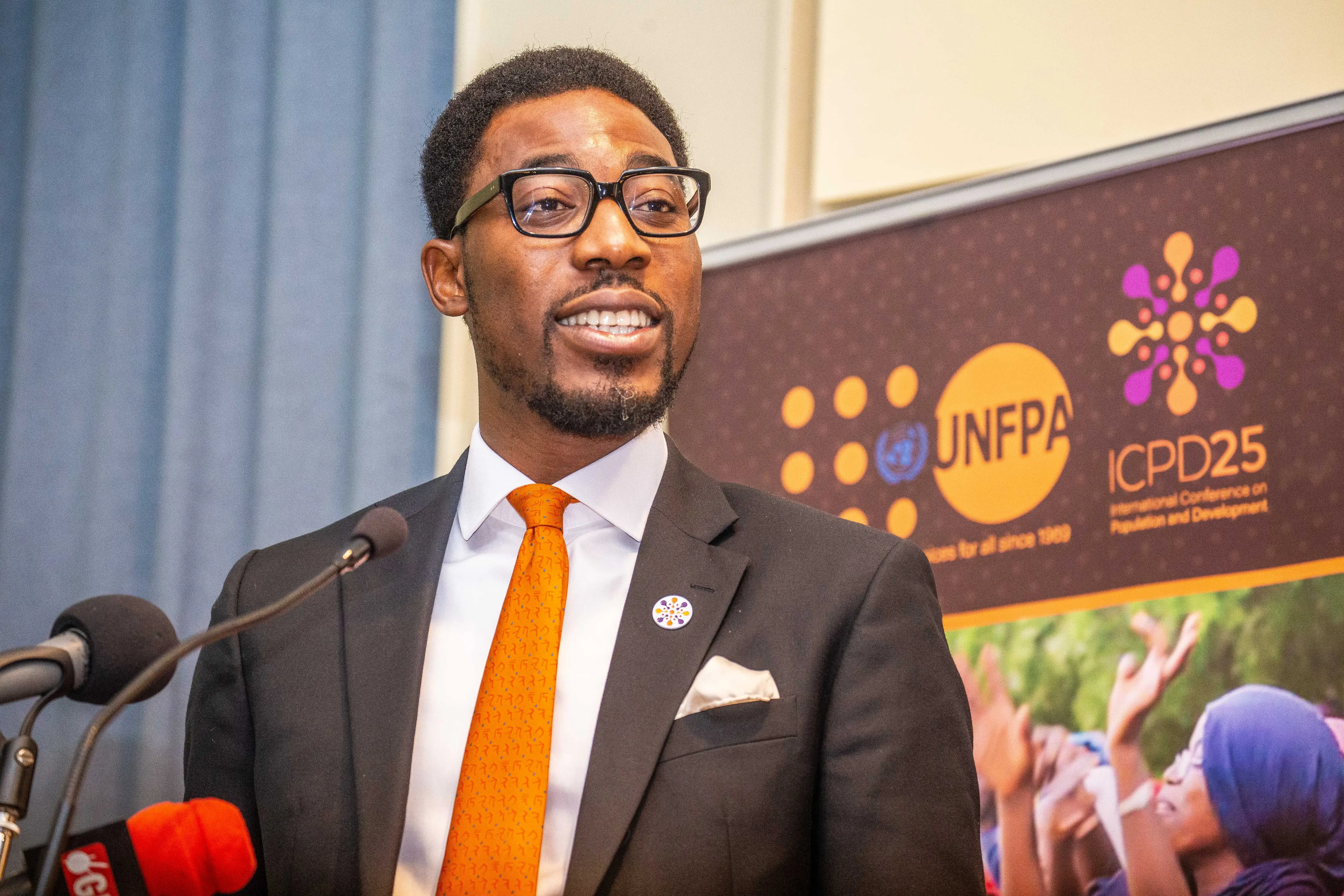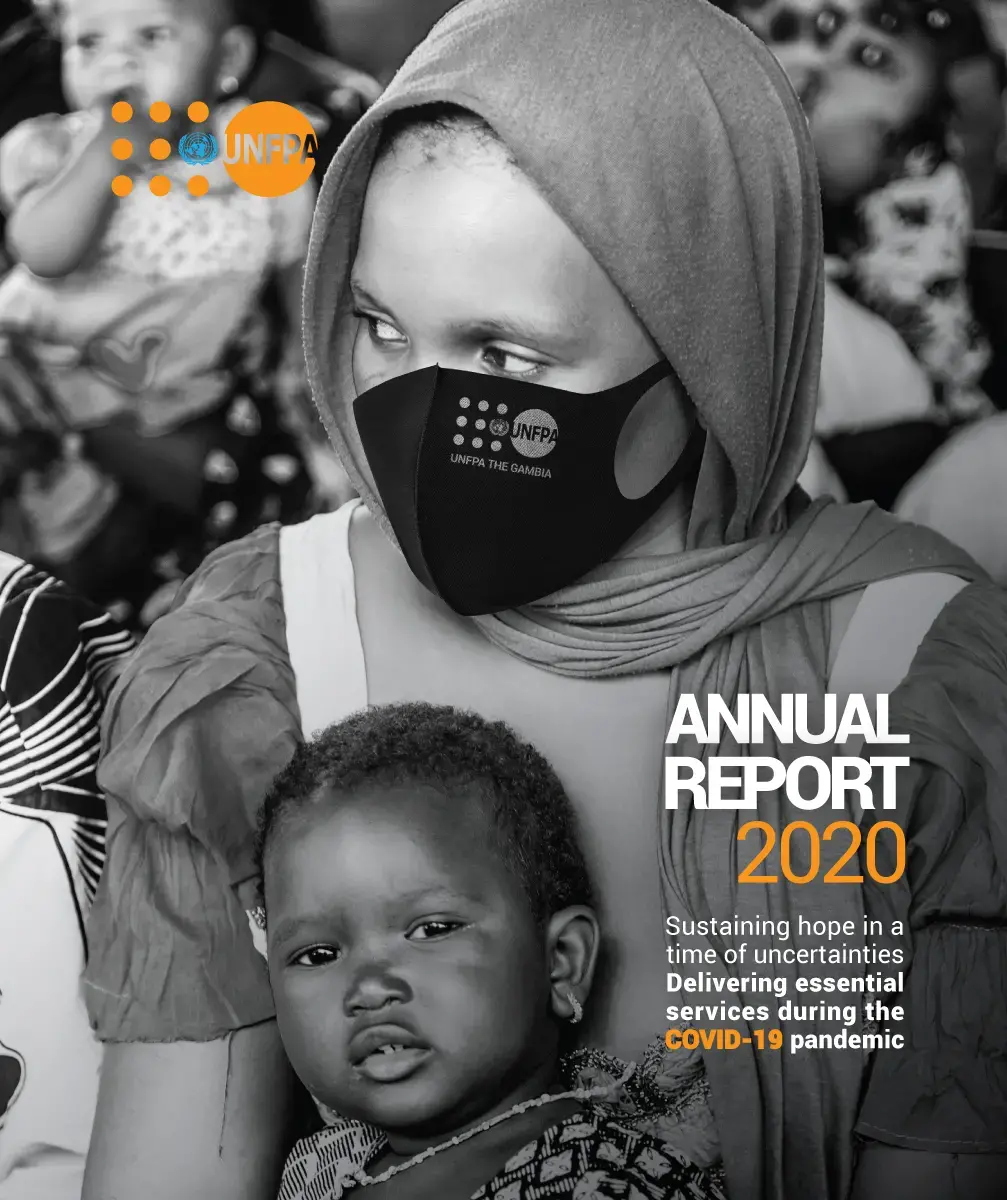The creation of safe spaces is a key strategy for promoting the protection and empowerment of women and girls. It is a tool for discussing women’s health and wellbeing, promoting shared learning and instilling positive support-seeking behaviour among women and girls.
On 22 December, The Woman Boss in partnership with UNFPA organised an informal safe space conversation dubbed ‘Uncomplicated Coffee: Let’s Talk all Things Women!’ which brought together young women from around the Greater Banjul Area. The event entailed learning sessions on Gender-Based Violence, importance of communication and amplifying women’s voices, seeking psychosocial support service. The young women also had an opportunity to have one-on-one conversations with psychosocial support professionals at the event.
Speaking at the gathering, Awamary Lowe-Khan, Founder of the Woman Boss highlighted that,
“creating a safe space for women to discuss issues affecting them, identify solutions to these problems and help uplift each other is key in ensuring women's health and holistic wellbeing."
In highlighting the challenges women and girls are faced with on a daily basis, the young women present at the event stressed that:
- Victim blaming;
- Body shaming;
- Stigmatisation and discrimination against persons with disabilities;
- Period shaming and pad poverty;
- Sexual harassment;

are major deterrents to women and girls’ health, safety and wellbeing in their various communities, highlighting that it is important to for women, community leaders and other stakeholders to join forces to build a safe and friendly environment where everyone can thrive in dignity and protected from all threats to their health and wellbeing.
According to Fatou Baldeh, Founder of Women in Leadership and Liberation and one of the facilitators at the gathering,
“we must understand that while both men and women face challenges in our communities, women and girls because of socially ascribed roles and norms, are more vulnerable to experience violence and abuse.”
This she said is why women and girls must hold conversations about their challenges and support each other to find sustainable solutions, thus breaking the chain of violence and abuse in their homes and communities.
While violence and abuse are challenging to address Jama Jack, a Communications Professional and facilitator at the event shared that, communicating, supporting women to access care and justice & calling for action to end all forms of violence, require positioning women and girls’ experiences and voices at the heart of response efforts. This however, is only possible if spaces and conversations such as these are made available to them because according to Joy Micheal, Gender and GBV Specialist at UNFPA, such spaces will immensely contribute towards improving the health, wellbeing and dignity of women and girls across the country and ensure that the mechanisms put in place to protect them are being utilised effectively.

Although an informal conversation, the gathering gave way for women to network, share their struggles, and access support in a safe and dignified environment, free of prejudice and judgement. This is why, UNFPA is committed to investing in permanent spaces within communities, were women can continuously access support and services and speak to each other about ways of dealing with their common daily challenges. Currently, the agency through the support of the UN Multi-Partner Trust Fund and UN Peacebuilding under its Rule of Law Project, is working with government and CSO partners in The Gambia to increase the availability of such spaces for women, including the construction of shelters and safe spaces as part of efforts to strengthen The Gambia’s GBV response mechanism.
Media Contact:
Haddy Jonga – Programme Analyst Communications, UNFPA The Gambia jonga@unfpa.org





